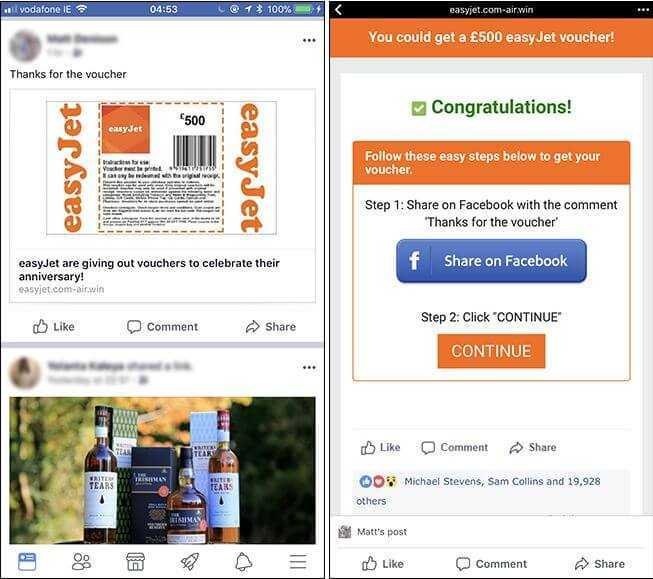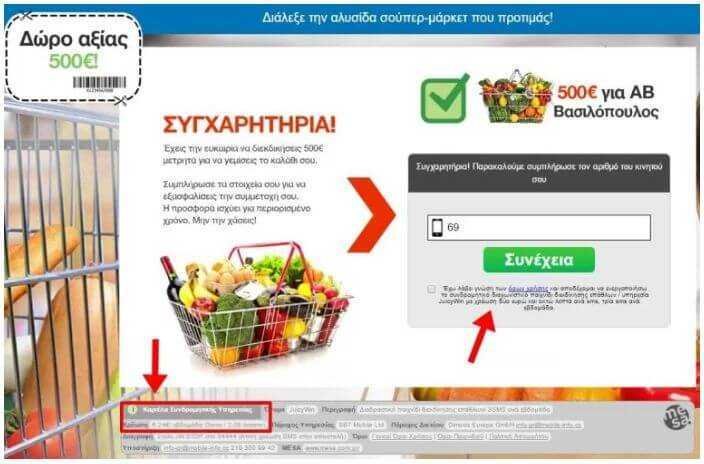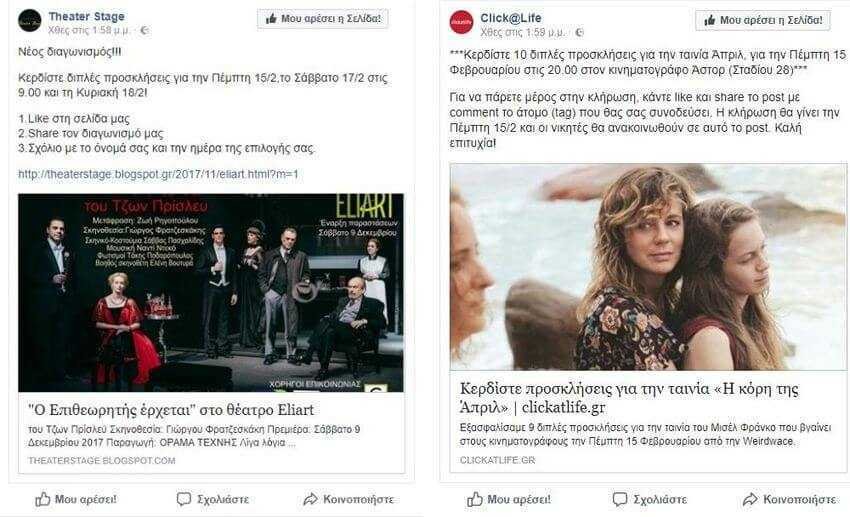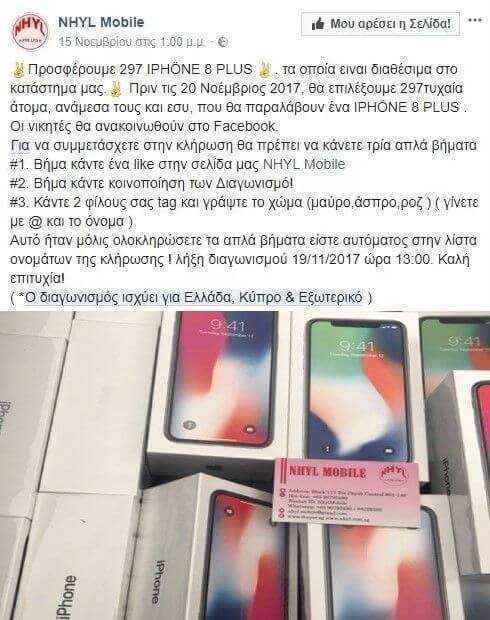Many Facebook pages announce or advertise competitions. Most of these are legitimate product and service offers, but there are often others that are scams designed to collect your personal information.

You must have come across at least one fake contest on Facebook that promises you hares with petrels. That promises you everything in order to convince you to give your details to join. The question is whether the competition you just saw on thenetwork is it true or false. There is no rule to help you decide. There are just a few things you can look for that will help you assess whether the competition in front of you is up to something sinister. Let's see what they are.
The gift is very good to be true
One of the biggest hints that a contest is a scam is the quality of the prize and what you have to do to win it. If it sounds too good to be true, then it probably is. Audi is almost certainly not going to you delivering a brand new RS7 using Facebook. Neither Aegean airline will give coupons of 2.500,00 euros to celebrate its anniversary. You will be bankrupt in one year.

This does not mean that there are no competitions where you can win a RS7 or a voucher worth 2.500,00 €. All these are very big prizes to share through Facebook by simply filling in your details. Competitions with such awards to bring the prize money to the company are made with great publicity (usually TV), the contest runs for a long time (maybe a semester) and it is presented by famous personalities of journalism.
Threatening URLs or Web Pages
Look carefully at the URL and the by clicking here who claims to share the gift. It's often a great way to get an idea of whether a contest is legit or fake.
Take, for example, the URL of the EasyJet contest that occasionally roamed Facebook. It is "easyjet.com-air.win". Although it includes the term "easyjet.com", it is followed by "-air.win". This means that the real domain of the site is "com-air.win". The "easyjet" track is a subdomain. Anyone can create the easyjet or aegean subdomain or anything else under any domain, for example like "aegean.iguru.gr".

There are many similar fake messages on Facebook, where the name of the page is the same as the official one, but it is followed by an irrelevant domain. For example, if "Audi Hellas" is its official Facebook page, the scammers will create "Audi Hellas" (with one extra dot) and organize a fake contest for it. Any trick of this kind should make you seriously suspect that something is wrong.

There is no official announcement on the official site
One good one essay is to check the official website of the company from which the competition is being conducted. When you visit the website of AB Vasilopoulos the first thing you will see is a competition with a prize of the "poor sum" of 6 euros. If he did a contest worth 800 euros it would be in bold letters and first on the home page. If AB Vassilopoulos or Lidl or Easyjet which we have seen from time to time "distribute huge amounts of money through Facebook they shared the money of the fake contest, on the one hand you would see the first one on the official website, and you would see it in all other media (TV, newspapers, radio, etc.).

You need to share it or tag your friends to join
Facebook has strict instructions on the type of competitions allowed on its pages. See the following piece of text from them terms and conditions of pages:
The dexport of promotions can be done on Facebook Pages or apps. You may not use personal Timelines and friends' links to conduct promotions (e.g., you may not use expressions such as “to participate, share this on your Timeline” or “to get more entries, share this on a friend's Timeline ” or “add your friends tagged in this post to participate”).
This means that competitions in which you have to share a post or enter friends to participate are in fact against the Facebook Pages Terms of Service. However, given how common this type of contest is, it is clear that many pages simply ignore the above condition of Facebook.

While many legitimate pages, such as the various theaters or music centers like the above screenshot, run such contests, ignoring the Facebook rules mean they can accept a red card at any time and Facebook to delete them.
They have made too many contests and have not provided proof
Most small businesses do not have the luxury to give 10 iPads. If a small local business conducts competitions every week with big prizes (iPhones and iPads are always popular), then either they have very deep pockets or something sly.

Likewise, if a page runs multiple contests and never announces the winner or uploads a photo of its giveaways, it's another suspicion that it's running fake contests. Although regular pages have the right not to publicly announce the winner, it is a good one advertising to do it. And publicity is why most pages run contests on Facebook. That is why in your terms of entry you will usually see that you agree to have your name announced if you are a winner.
Translation is Google
If the translation of the contest message is not fluent in Greek and resembles Google's automatic translation, it is most likely to be a fake contest. The business that will actually distribute presents wants advertising and of course correct advertising can not be done with broken Greek.
Messages of this kind indicate sloppiness, with the aim of as much global fraud as possible, attracting victims from all over the world and in all languages. If the dates and months are written by another person, such as "Before November 20, 2017, we will select 297 people" then you better go away.
How does a legal contest look like
What legal tenders have is the exact opposite of all of the above. Check out this offer for The Grand Tour of Amazon. The contest is shared by a legal page related to the show. It has a link to the Amazon website. The prize makes perfect sense: a visit to the studio where the show is being shot. There is even a disclaimer of liability of T & Cs! You will not find anything suspicious or anything that suggests that it is not what it seems.

Facebook, though knowing that their users are running contests on their platform, do not want to have anything to do with it. The instructions and terms of use make it very clear that they accept no responsibility for competitions conducted by users and will not be policed. Although for legitimate pages this makes it easy to conduct competitions without having to go through formalities. approvals and licenses, it also leaves the door open for fraudsters.
The best advice we can give you is to trust your instincts, to look for yourself before you decide, and if a contest has more than one of the above signs it is better not to participate. And whatever you do, never provide your Facebook login and do not send money to anyone who claims to have won a contest.





